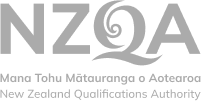Strategic Education Plan 2024 (PCTIL Code of Practice 2021)
Outcome 1: A learner wellbeing and safety system
The purpose of this qualification is to enable the recognition of the entry level skills and knowledge required by the Seafood primary industry sector, and to provide a training pathway for entry into careers in the Commercial Fishing and Seafood processing primary industry contexts. This programme is run by RMG under contractual arrangement with Te Pūkenga – Work Based Learning.
- Set strategic goals and objectives (in 2023): Develop clear and measurable objectives aligned with learner wellbeing and safety, incorporating feedback from stakeholders.
- Conduct regular self-reviews of learner wellbeing and safety practices: Implement systematic self-assessment processes to continuously monitor and enhance our practices.
- Publicize this plan, revisions, and self-review reports: Ensure transparency by sharing our learner wellbeing and safety plan, updates, and self-review findings with all stakeholders.
- Determine responsive wellbeing and safety systems for workplace learning: Identify and implement tailored strategies that address
Outcome 2: Learner voice
NZTI will actively engage with diverse learner voices, respecting their mana and autonomy.
- Establish processes to actively listen to and engage with a diverse range of learner voices: Create mechanisms for learners to provide feedback, suggestions, and concerns.
Outcome 3: Safe, inclusive, supportive, and accessible physical and digital learning environments
NZTI will nurture safe, inclusive, and supportive physical and digital learning environments to enhance the learning experience for all learner groups.
- Establish safe and inclusive communities: Foster an environment where all learners feel safe, included, and supported.
- Support learner participation and engagement: Implement initiatives to encourage active participation and engagement among diverse learner groups.
- Provide healthy and secure physical and digital spaces and facilities: Ensure that physical and digital learning environments are conducive to positive learning experiences.
Outcome 4: Learners are safe and well
NZTI will help provide learners with the information, support, and resources needed to manage their physical and mental health while promptly addressing those in need.
- Provide information to learners about assistance for basic needs: Disseminate information on available resources and assistance programs to help learners meet their basic needs.
- Promote physical and mental health awareness: Implement awareness campaigns and educational programs to encourage healthy lifestyles and mental well-being.
- Determine proactive monitoring and responsive wellbeing and safety measures for workplace learning: Develop systems to monitor learner wellbeing and safety that can be taken in workplace learning situations.
- Effectively respond to and process learner complaints: Establish efficient procedures for addressing and resolving learner complaints.
- Comply with relevant Dispute Resolution Scheme rules for domestic learners: Ensure
Student Accommodation
NZTI (Risk Management Group) is not a signatory to the Code of Practice for International students therefore does not enrol international students.
International learners
NZTI (Risk Management Group) does not provide student accommodation.

